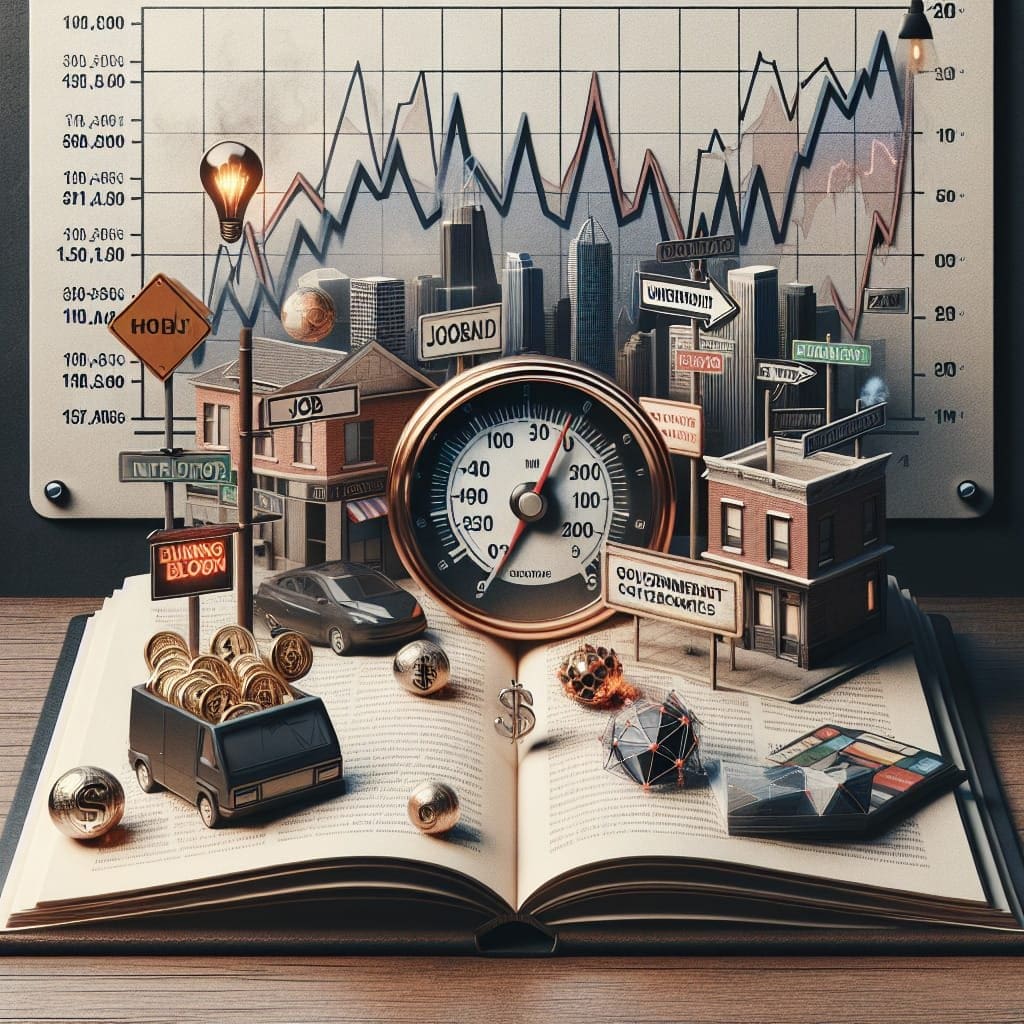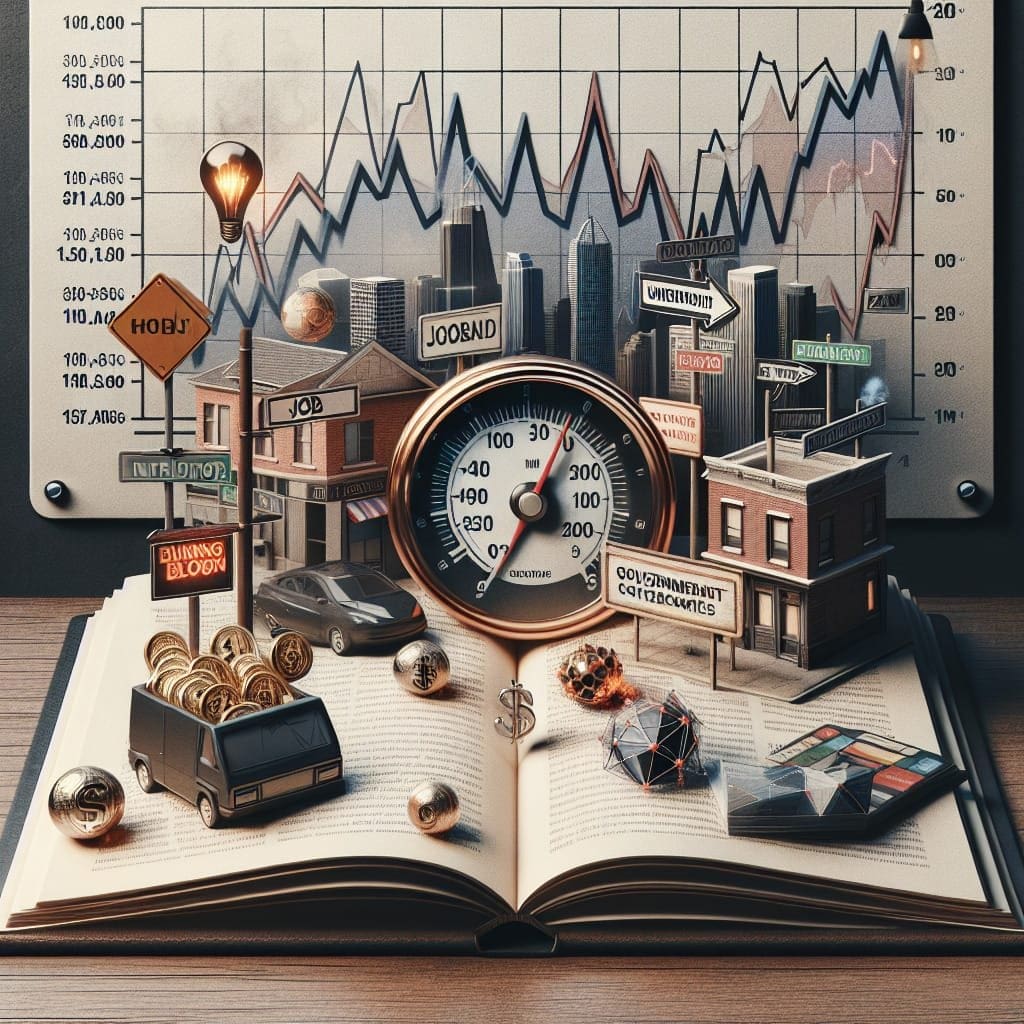You're in for a fascinating read as we explore the 10 signs that hint at the possibility of an impending economic crisis. Brace yourself for an insightful journey where we'll delve into various indicators that might be signaling trouble ahead in the financial world. From fluctuating stock markets to rising unemployment rates, these warning signs provide us with valuable insights into the state of our economy. So grab a cup of coffee, sit back, and get ready to unravel the mysteries behind these potentially troubling trends.
Signs of an Impending Economic Crisis
In today's uncertain economic climate, it is crucial to stay informed about the signs that may indicate an impending economic crisis. By recognizing these warning signals, you can take proactive measures to protect yourself, your finances, and your future. This article will provide a comprehensive overview of ten key signs that may indicate the onset of an economic crisis.

1. Stock Market Volatility
One of the most visible signs of an impending economic crisis is stock market volatility. Erratic swings in stock prices, high-frequency trading, and increased market uncertainty can all contribute to a volatile stock market. These fluctuations often reflect underlying concerns about the overall health of the economy and can be indicative of future economic troubles.
2. Rising Unemployment Rates
Another worrisome sign of an impending economic crisis is the rise in unemployment rates. Job losses across multiple sectors, an increased number of layoffs, and a rise in long-term unemployment can all point towards a weakening economy. High levels of unemployment not only put a strain on individuals and families but also have broader negative implications for consumer spending and overall economic growth.
/bKHyqO72oAo” frameborder=”0″ allowfullscreen>
3. Declining Consumer Confidence
Declining consumer confidence is a significant indicator of an impending economic crisis. Reduced spending patterns, pessimism about the economic future, and lower levels of economic sentiment can all contribute to declining consumer confidence. When individuals are uncertain about the future state of the economy, they are less likely to spend money, which can have a ripple effect throughout the entire economy.
4. Increasing Public Debt
Increasing levels of public debt are a red flag when it comes to the health of an economy. Growing budget deficits, unsustainable government spending, and escalating interest payments on debt can contribute to an impending economic crisis. High levels of public debt make it increasingly difficult for governments to invest in key areas such as education, healthcare, and infrastructure, which can hinder long-term economic growth.

5. Decreasing Business Investments
A decline in business investments is another sign that an economic crisis may be looming. Reduced capital expenditures, a cautious approach to expansion, and a lack of investor confidence can all contribute to decreasing business investments. When businesses are hesitant to invest, it hampers economic growth and job creation, ultimately putting a strain on the overall health of the economy.
6. Inflationary Pressure
Inflationary pressure is an important indicator of the economic health of a nation. Rising consumer prices, shrinking purchasing power, and wage-price spirals can all contribute to inflationary pressure. When inflationary pressures mount, individuals and businesses may struggle to afford essential goods and services, which can lead to decreased spending and economic contraction.
7. Declining GDP Growth
A slowdown in GDP growth is a clear sign of an impending economic crisis. Decreased productivity levels, negative economic multipliers, and a general slowdown in economic output can all contribute to declining GDP growth. When a country's GDP growth rate decreases, it often indicates a contraction in economic activity, which can have far-reaching consequences for individuals, businesses, and the overall economy.
8. Banking System Instability
An unstable banking system is another worrisome sign of an impending economic crisis. An increasing number of bank failures, looming banking crises, and insufficient capital reserves can all contribute to the instability of the banking system. A fragile banking system can lead to a lack of confidence among depositors and investors, potentially triggering a widespread crisis that can have devastating effects on the economy.
10. Trade Imbalances
Imbalances in trade can be indicative of an impending economic crisis. Widening current account deficits, high trade barriers, and imbalanced import and export levels can contribute to trade imbalances. When trade imbalances persist, it can lead to economic disparities and negatively impact a nation's ability to compete in the global market, which in turn can have significant implications for the overall health of the economy.
In conclusion, it is crucial to be aware of the signs that may indicate an impending economic crisis. By understanding and recognizing the warning signals, individuals and businesses can take proactive measures to protect themselves and mitigate the potential harm caused by an economic downturn. By closely monitoring stock market volatility, rising unemployment rates, declining consumer confidence, increasing public debt, decreasing business investments, inflationary pressure, declining GDP growth, banking system instability, and trade imbalances, you can be better prepared to weather the storm and navigate the challenges of an economic crisis. Remember, knowledge is power, and staying informed is essential in these uncertain times.











